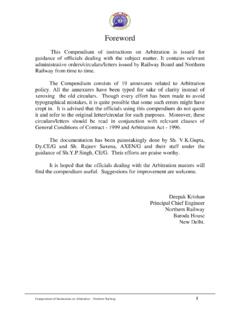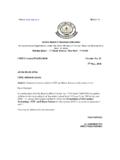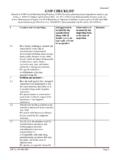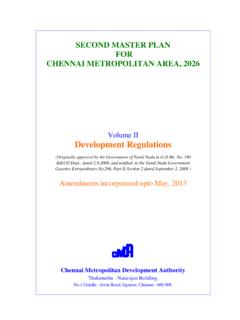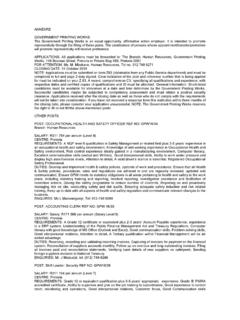Transcription of 1 January 2017 - Final marked-up - LTS Logon Basic
1 TRAINING REGULATIONS Effective 1 january 2017 NOTE: Words importing the masculine gender include the female gender Insertions are indicated in bold, underlined text Deletions are indicated by means of italicised, struck through text Regulations: 1 january 2017 Marked up 1 TABLE OF CONTENTS CHAPTER 1 - GENERAL PROVISIONS Authority and interpretation of the regulations Discretionary powers of SAICA regarding training and accreditation matters Definitions, abbreviations and acronyms CHAPTER 2 - ACCREDITATION AS A TRAINING OFFICE Requirements for accreditation and re-accreditation as a training office Lapse or cancellation of accreditation Misrepresentation about accreditation CHAPTER 3 - THE TRAINING OFFICER Registration requirements Duties of a training officer Responsibilities of executive management in respect of the SAICA training programme Liability for fees and reimbursement in respect of such fees CHAPTER 4 - THE TRAINEE ACCOUNTANT Duties and responsibilities of a trainee accountant Hours of work and overtime Conditions of
2 Employment and employment contract CHAPTER 5 - TRAINING CONTRACT Entry requirements for a training contract Probationary period Term and hours of a training contract Academic remission Registration of a training contract Recognition of prior learning Secondment of a trainee accountant Suspension of a training contract Cancellation of a training contract Cancellations that attract a cancellation penalty Cancellation on the basis of insufficient academic progress Disciplinary cancellation Entering into a new training contract following the cancellation of a previous contract Cancellations that do not attract a cancellation penalty Administration of cancellations Academic recess Extension of a training contract Discharge of a training contract Exemption from training under a training contract CHAPTER 6 - CORE EXPERIENCE, ASSESSMENT AND OTHER RELATED MATTERS Failure to achieve competence and/or prescribed core experience and work attendance hours Assessment of a trainee accountant s competence CHAPTER 7 DISPUTE RESOLUTION AND DISCIPLINARY PROCESSES Confirmations, validations and certificates Disputes Disciplinary process Regulations.
3 1 january 2017 Marked up 2 CHAPTER 8 TRANSITIONAL ARRANGEMENTS AND COMMENCEMENT Repeal and transitional arrangements Short title, commencement and amendments ANNEXURES Annexure 1 Accredited academic qualifications Annexure 2 Accreditation criteria Annexure 3 Duties of the training officer and the trainee accountant Annexure 4 Complaints procedure and other referrals Annexure 5 Arbitration process in the event of a dispute about a training contract Annexure 6 Rules for the academic traineeship programme Annexure 7 Appeals of assessment decisions GUIDELINES Guideline 1 Recognition of prior learning Guideline 2 The academic progress rule TEMPLATES Template 1 Notification letter for potential contravention
4 Of the academic progress rule Template 2 Notification letter for contravention of the academic progress rule Template 3 Notification letter for failure to submit assessment forms on a timely basis Template 4 Notification letter for possible extension or cancellation for failure to achieve competence Regulations: 1 january 2017 Marked up 3 CHAPTER 1 - GENERAL PROVISIONS 1. AUTHORITY AND INTERPRETATION OF THE REGULATIONS The South African Institute of Chartered Accountants (SAICA), after consultation with relevant stakeholders, has determined that the following Training Regulations ( Regulations ) pertain to the training of trainee accountants.
5 These Regulations must be interpreted in a manner that is consistent with the SAICA Constitution, By-laws Code of Professional Conduct, the Auditing Profession Act, 2005 and any other applicable legislation of the Republic of South Africa, in order to give full effect to the objective of producing competent and professional chartered accountants. The headings and sub-headings in these Regulations must not be taken into account in the interpretation of these Regulations. The annexures referred to in the Regulations form part of these Regulations. The explanatory notes, guidelines and templates are merely for clarification, and should be read in conjunction with these Regulations.
6 2. DISCRETIONARY POWERS OF SAICA REGARDING TRAINING AND ACCREDITATION MATTERS SAICA has the power, in its absolute discretion and in the interests of the profession, to refuse to register a training contract of a trainee accountant who, despite the fact that he meets other registration requirements, is nevertheless disqualified for registration as a CA(SA) or an AGA(SA) in terms of SAICA s Constitution and By-laws; and/or order the cancellation of the training contract of a trainee accountant who, despite the fact that he meets other requirements in terms of his training contract, is nevertheless disqualified for registration as a CA(SA) or an AGA(SA) in terms of SAICA s Constitution and By-laws; and/or refuse to consent to any request or application relating to the training; and/or make any decision relating to any existing training contract; and/or make any decision relating to the accreditation or continued accreditation of a training office.
7 Notification in writing about SAICA s decision in relation to training or accreditation matters is Final and binding, provided all the relevant appeal procedures of SAICA have been exhausted. Regulations: 1 january 2017 Marked up 4 3. DEFINITIONS, ABBREVIATIONS AND ACRONYMS The accredited bridging programme has been added to the definition of academic progress The following definitions have been added: o Accreditation quota o Annual return o Compliance rating o Risk rating o Secondment o Self-evaluation Provision has been made for an AGA(SA) to register as an assessor In these Regulations, unless expressly stated otherwise or inconsistent with the context in which they appear academic progress means the satisfactory completion of all or sufficient subjects to enable a trainee accountant to make one further year of progress towards the completion of an accredited BCom or accredited bridging programme.
8 The trainee accountant must achieve at least one year of academic progress during any two calendar years. This progress is measured by passing the examinations of the accredited education institution; academic trainee accountant means a trainee accountant who participates in SAICA s academic trainee accountantship programme and spends the first year of his training contract at an accredited education institution that offers an academic training programme accredited by SAICA for this purpose; accreditation criteria mean a set of requirements with which an organisation has to comply before it can be accredited or re-accredited as a training office.
9 Accreditation quota means the maximum number of trainee accountants that may be employed as a trainee accountant in a training office at any given time; accredited BCom means an undergraduate qualification accredited by SAICA (See Annexure 1); accredited bridging programme means a bridging programme accredited by SAICA (See Annexure 1); accredited education institution means an institution that awards a qualification accredited by SAICA (See Annexure 1); AGA(SA) means an Associate General Accountant (South Africa) who is registered as such with SAICA; ANA means an Assessment Needs Analysis and refers to a form used as part of the assessment process to record a trainee accountant s cumulative competence to date; analyse his developmental needs; and provide developmental and support plans on how these developmental needs will be addressed during the next evaluation period; annual return is a return submitted to SAICA in the prescribed form by a training office and evaluated by SAICA to establish the extent to which the training office meets the SAICA accreditation criteria as set out in Annexure 2 of these Regulations.
10 APC means the Assessment of Professional Competence, and is set by the APC Examinations Committee as one of the prerequisites for registration as a CA(SA); CA(SA) means a Chartered Accountant (South Africa) who is registered as such with SAICA; complaint means any information which is provided to SAICA in terms of the complaints procedure set out in Annexure 4 or any information which comes to SAICA s attention through any other means, which may contravene the SAICA Constitution, By-laws or these Regulations; compliance rating means the rating assigned to a training office following a re-accreditation intervention, indicating the extent to which the training office has met SAICA s accreditation criteria; Regulations: 1 january 2017 Marked up 5 core experience hours refers to all time spent by a trainee accountant on work or activities related to the prescribed compulsory, elective and residual competencies and excludes academi
